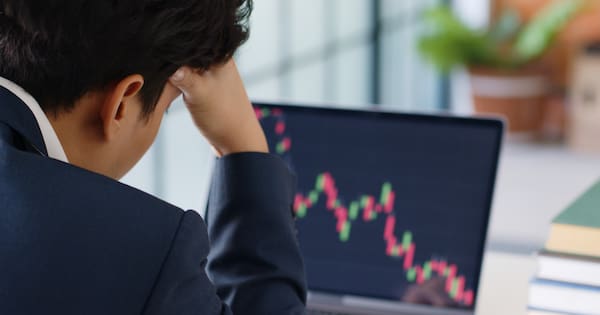Prime Minister Christopher Luxon appears optimistic about his year of economic growth despite “frustrating” recent GDP figures and a new ASB survey showing depressed investor confidence in the economy.
Confidence among New Zealand investors dropped to its lowest levels since the Covid-19 pandemic during the last quarter, according to the new figures.
ASB’s Investor Confidence Survey found that net investor confidence, which was the difference between those who think investment returns will improve versus worsen in the coming year, had dropped from 9% in Q1 to just 1% in the June quarter.
The drop in numbers, released after it was revealed New Zealand’s GDP had slumped 0.9% in the June quarter, was driven by the “flat” housing market, share market volatility, and global economic uncertainty.
“It’s been a challenging six months, with markets affected by uncertainty around tariffs and global issues, alongside concerns at home, such as the housing market, which hasn’t bounced back the way people expected it to,” ASB senior economist Chris Tennent-Brown said.
Christopher Luxon appeared on Breakfast amid a new survey which found investor confidence at its lowest since mid-2020. (Source: Breakfast)
“This has led to a more pessimistic tone in overall investor confidence, which seems to be suffering from the same weak sentiment we’re seeing in consumer confidence.”
Speaking on Breakfast, Luxon acknowledged that last week’s GDP release had been “frustrating” and “challenging”, but appeared optimistic about investment in New Zealand.
“On investors, I’m not so sure about that. If you think about it, we had a big infrastructure investor summit at the beginning of the year. We’ve had huge amounts of interest from big superannuation funds from around the world,” he said.
“If you look at the big-scale infrastructure investors, they’re actually still coming to New Zealand — still very invested in wanting to get involved in projects.”
He again blamed US’ new tariff regime as a big factor.
“The Trump tariffs came down, and you literally could see the economy come to a sort of a halt, and we all felt that in the last quarter,” he said.
“Now we’re growing. If you look at it, we’ve got primary industries having a record year. You’re seeing tourism. We’re doing everything we can to pump up major events. We had a record year in July for Australians coming to New Zealand.
“We’ve got major opportunities around more investment.”
At the beginning of the year, the Prime Minister and the Government repeatedly heralded that 2025 would be the year of “going for growth” for the economy.
Confidence low among investors, survey claims
Investors in the lower North Island experienced the biggest drop in confidence – plummeting 18% from net 12% in the three months to January to -6% this quarter.
Aucklanders were more positive, however, with a net 10% expecting things to improve.
Those under 39 had higher confidence, while those over 60 were more pessimistic.
“This in part a reflection of where the different age demographics tend to hold their assets and where they are in the investment life cycle,” Tennent-Brown said.
The current instability of global politics and markets has also made investors feel less confident.
US President Donald Trump’s tariffs have turned the global economy on its head, while the wars in Ukraine and Gaza continue to disrupt international trade.
Just over half (51%) of those surveyed said they were very concerned about the impact of global political instability or uncertainty on investments.
The survey found 47% felt the same way about geopolitical tension and conflict, and 43% about international trade policies, including tariffs.
The morning’s headlines in 90 seconds, including Liam Lawson’s best result, recognition for a Palestinian state, and the best view of today’s partial solar eclipse. (Source: 1News)
The bank said more than half of those with concerns had made, or considered making, changes to their investments.
Tennent-Brown said global issues had impacted a lot of investors around April, but said markets had improved and were “knocking around record highs in the case of the US share market”.
“Understandably, global issues are still weighing on Kiwi investors’ minds, and there is still a lot of uncertainty both here and abroad.
“However, it was pleasing to see confidence in managed investments lift over the quarter, although confidence in KiwiSaver did ease within the survey when investors were asked which investment they expect to provide the best return.”
He said the second quarter had “highlighted the importance of sticking with long-term strategies and savings goals, rather than chopping and changing to try and time markets”.
The June quarter’s figure was the lowest since quarter three 2020, but well above Q2 2020 which was -25%.

